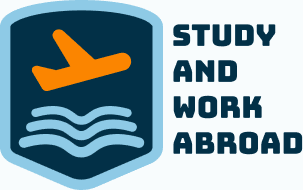Call Us:+91-9920234749, +91-9833420909 info@studyandworkabroad.in
How AI is Transforming Study Abroad Programs: Tools and Benefits for Students
Artificial intelligence (AI) is no longer something from the future; it’s now a big part of our everyday lives. AI is changing many areas, including education, with tools like robots and predictive analytics. Study abroad programs are one of the most interesting areas where AI is having a big effect.
By making learning and change simpler, artificial intelligence is altering students’ plans and learning while they study abroad. This article discusses how artificial intelligence is changing study abroad programs as well as the tools and advantages it offers for students.
AI Tools Making Study Abroad Programs Better
Students studying overseas stand much of an advantage from AI. Its major applications are:
1. Platforms for Customized Counseling
By analyzing their academic profiles, interests, and career objectives, Edvoy and Studyportals provide customized recommendations for each student. These websites search thoroughly for courses and colleges that meet your requirements.
2. Instruments for Language Acquisition
Usually, one must first pick up the language before being able to study abroad. Run by artificial intelligence, adaptive learning methods let users of Duolingo, Babbel, and Rosetta Stone learn languages faster and better.
3. Virtual Guides and Assisters
To answer questions on how to get into school, get a visa, and apply for scholarships, more and more colleges are implementing chatbots and virtual assistants like Siri and ChatGPT. These instruments let pupils find solutions right away, therefore saving time and effort.
4. AI-driven Translation Tools
Google Translate and DeepL real-time interpreting text, sounds, and images helps to lower language barriers. Students flying overseas will value this.
5. Instruments of Predictive Analysis
Artificial intelligence systems can use data inputs to forecast a person’s probability of loan application, educational attendance, or cultural adaptation. Using predictive analytics, Unibuddy pairs students with teachers having similar experiences.
6. Virtual Trips to Campus
Virtual campus visits allow students to use artificial intelligence and virtual reality to tour universities from home. Those unable to fly for pre-admission visits will find this technology very useful.
Real-Life Illustrations of AI-Changing Research Travel Plans
- The artificial intelligence chatbot “Tara” from the University of Auckland assists foreign students using university facilities and admissions.
- Since they are more reasonably priced and simpler than the TOEFL and IELTS, conventional language tests have been included in an AI-driven assessment.
- Kaplan develops custom study plans and uses artificial intelligence to track student development so that course requirements are satisfied.
Advantages of AI for Students Who Want to Study Abroad
Not only does AI make it easier to study abroad, but it also makes the whole experience better. All of these things are good:
1. Streamlined forms and processes
The old ways of applying can be difficult and take a lot of time. They also need a lot of study and paperwork. AI platforms make this easier by taking over boring jobs like uploading files and filling out forms. They also tell you of due dates and information that you need to have.
2. Recommendations for customized programs
AI systems look at what students want and what qualifications they have to find colleges that will help them reach their goals. This personalized method saves time and makes sure that students make smart choices.
3. Better ability to adapt to different cultures
One of the hardest things about studying abroad is often getting used to a new society. AI tools, such as CultureGrams and AI-driven cultural education apps, help people get used to the new culture by teaching them about local customs, manners, and ways of life.
4. Keeping track of living expenses
Students can keep a good eye on their money with artificial intelligence planning tools like Mint and YNAB. These tools look at how much people spend and give them tips on how to save money to help them make sure they can pay for school while they are abroad.
5. Help with homework and projects
Artificial intelligence (AI) drives tailored learning experiences for students on sites such as Coursera, LinkedIn Learning, and ChatGPT. Academic writers can take advantage of the instantaneous feedback Turnitin and Grammarly provide.
6. Advance your professional self
When it comes to figuring out what to do after graduation, AI is a lifesaver. Recent grads can find work with the help of AI-driven career counseling services, platforms like LinkedIn and Indeed, and by improving their resumes, practicing for interviews, and interacting with firms.
7. Enhanced safety and well-being
Engaging students with environmental issues, artificial intelligence ensures their safety and well-being. Platforms such as Safeture and bSafe actively monitor users and connect them to support systems in times of crisis.
Challenges and Ethical Considerations
Artificial intelligence (AI) has a lot of promise, but many questions about its limits have not been answered. Since AI systems gather so much data, many are worried about the safety of student information. The digital divide widens when some pupils lack access to affordable artificial intelligence (AI) resources.
If AI-driven systems promote discrimination in program suggestions or adoption, many populations may suffer. Overexposure to AI may impair children’s critical thinking and problem-solving.
AI’s Future in Study Abroad Programs
AI will increasingly be used in study abroad programs. Emerging technologies include predictive success models, AR for cultural inclusion, and AI-driven training programs. Enhanced real-time academic support will require NLP. AI gives students unique skills and benefits, transforming study abroad programs.
AI simplifies program use, increases cultural adaptability, and improves classroom efficiency, preparing students for life abroad. Addressing ethical and accessibility issues will make these technologies useful for all students. AI could improve study abroad speed, efficiency, and satisfaction.



